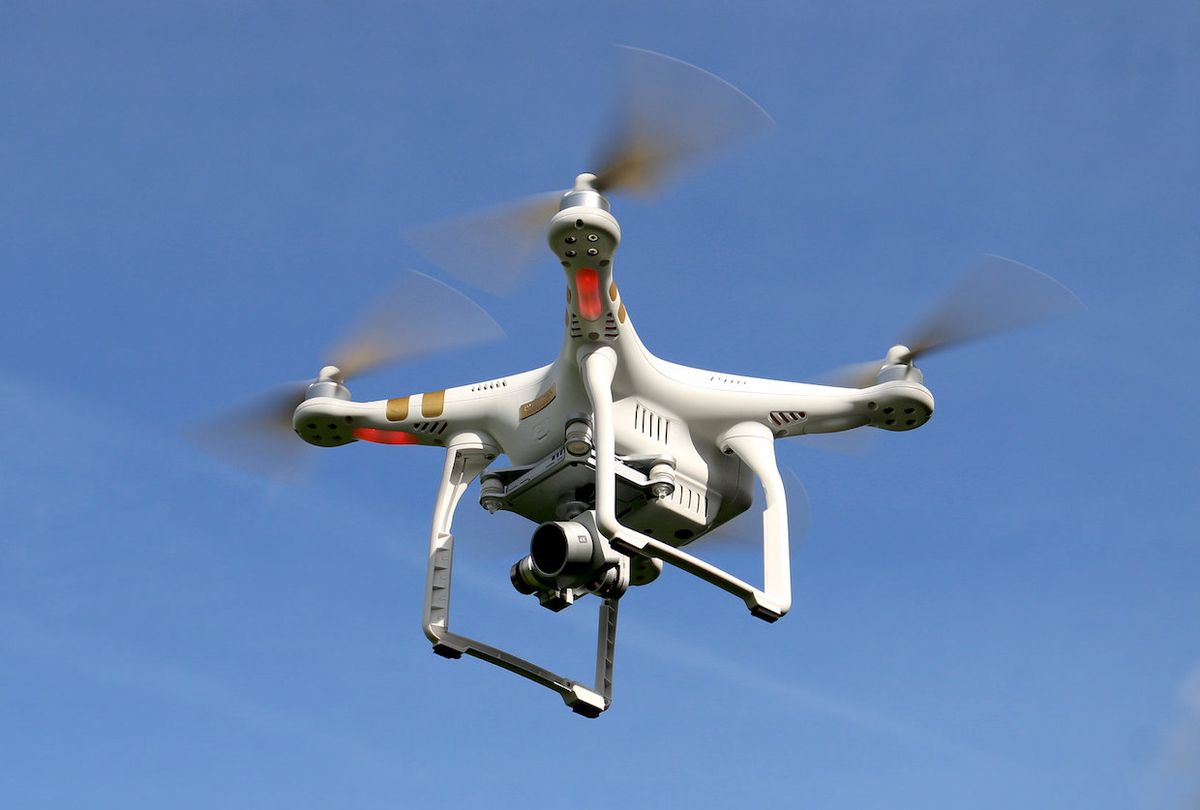Since December of 2015, Americans have been required to register any drone that weighs more than two sticks of butter with the Federal Aviation Administration (FAA). It’s a minor hassle and costs a little bit of money and seems like a reasonable idea considering how many people are flying sizeable drones nowadays. However, there was one particular group that really didn't appreciate the new ruling: model aircraft enthusiasts. One of them sued the FAA in February of 2016, and a federal court in Washington, D.C. ruled in favor of hobbyists, meaning that the FAA can no longer require you (or anyone else) to register their personal drones.
Here’s the important bit of the ruling (you can read the whole thing here):
In short, the 2012 FAA Modernization and Reform Act provides that the FAA “may not promulgate any rule or regulation regarding a model aircraft,” yet the FAA’s 2015 Registration Rule is a “rule or regulation regarding a model aircraft.” Statutory interpretation does not get much simpler. The Registration Rule is unlawful as applied to model aircraft.
Yup, it’s that simple. There’s been a rule on the books since 2012 that says the FAA can’t make rules about model aircraft, and since drones count as model aircraft, the FAA can’t mess with them at all. Mandatory registration over.
The FAA tried to argue that it needed to make a new rule in order to meet its general directive of “improving aviation safety,” but the court wasn’t having it:
Aviation safety is obviously an important goal, and the Registration Rule may well help further that goal to some degree. But the Registration Rule is barred by the text of Section 336 of the Act. [...] Congress is of course always free to repeal or amend its 2012 prohibition on FAA rules regarding model aircraft. Perhaps Congress should do so. Perhaps not. In any event, we must follow the statute as written.
So, it’s not like the court thinks that mandatory drone registration is a bad idea, or that the FAA shouldn’t be in charge of it. It’s just that the law doesn’t currently allow the FAA to do what it did. Oops.
Here’s a statement from the Academy of Model Aeronautics (AMA):
“AMA is encouraged to see the Court affirm the strength of the Special Rule for Model Aircraft, otherwise known as Section 336, under which our members operate. For decades, AMA members have registered their aircraft with AMA and have followed our community-based safety programming. It is our belief that a community-based program works better than a federally mandated program to manage the recreational community.”
“We have long held that federal registration of unmanned aircraft systems (UAS) makes sense at an appropriate threshold of weight, capability and other safety-related characteristics. However, federal registration shouldn’t apply at such a low threshold that it includes toys. It also shouldn’t burden those who have operated harmoniously within our communities for decades, and who already comply with AMA’s registration system.”
I can understand the AMA’s perspective on this: They’ve been safely flying model aircraft for years. But until very recently, flying model aircraft required a lot of money and a lot of skill, and starting from scratch by yourself was very difficult. This helped to ensure that people just starting out with the hobby joined an experienced community that could establish and abide by their own safety rules. This is no longer the case, thanks to drones. It’s great that the technology is so accessible and affordable, but it means that the population of drones (and of untrained users) is exploding, and there’s no particular reason for any of these people to get involved in a community of more experienced users, since most drones fly just fine right out of the box.
And here’s the other side of things, in a statement from the Association for Unmanned Vehicle Systems International (AUVSI):
“AUVSI is disappointed with the decision today by the U.S. Court of Appeals to reject the FAA’s rule for registering recreational unmanned aircraft systems (UAS). A UAS registration system is important to promote accountability and responsibility by users of the national airspace, and helps create a culture of safety that deters careless and reckless behavior. We plan to work with Congress on a legislative solution that will ensure continued accountability across the entire aviation community, both manned and unmanned.”
There is certainly potential for danger from drones hitting people or aircraft, but there’s also a lot of uncertainty in terms of how to mitigate these risks. This is not to say that we should not make an effort towards proactive drone safety: With the FAA expecting over 3.5 million drones to be in the hands and skies of Americans by 2021, it seems certain that we’ll need some kind of framework to ensure safety (and privacy) before things get too crazy.
This whole thing is based on the 2012 FAA Modernization and Reform Act (which contains the language about the FAA not making new rules that apply to model aircraft), and that act expires at the end of this year. Once it does, the FAA could take another crack at rulemaking, or (and perhaps this is more likely), Congress will draft some new laws governing the safe use of drones and other model aircraft, which may or may not (but seems like probably will) include mandatory registration. Many other things could change as well: I wouldn’t be surprised if there was an adjustment to the minimum mass of a drones that the FAA decides to care about, and it’s entirely possible that there could be a registration exemption for people who fly with community groups in designated areas, which could potentially satisfy model aircraft hobbyists as well.
Photo: Andri Koolme via Flickr (CC BY-SA 2.0)
Evan Ackerman is a senior editor at IEEE Spectrum. Since 2007, he has written over 6,000 articles on robotics and technology. He has a degree in Martian geology and is excellent at playing bagpipes.



